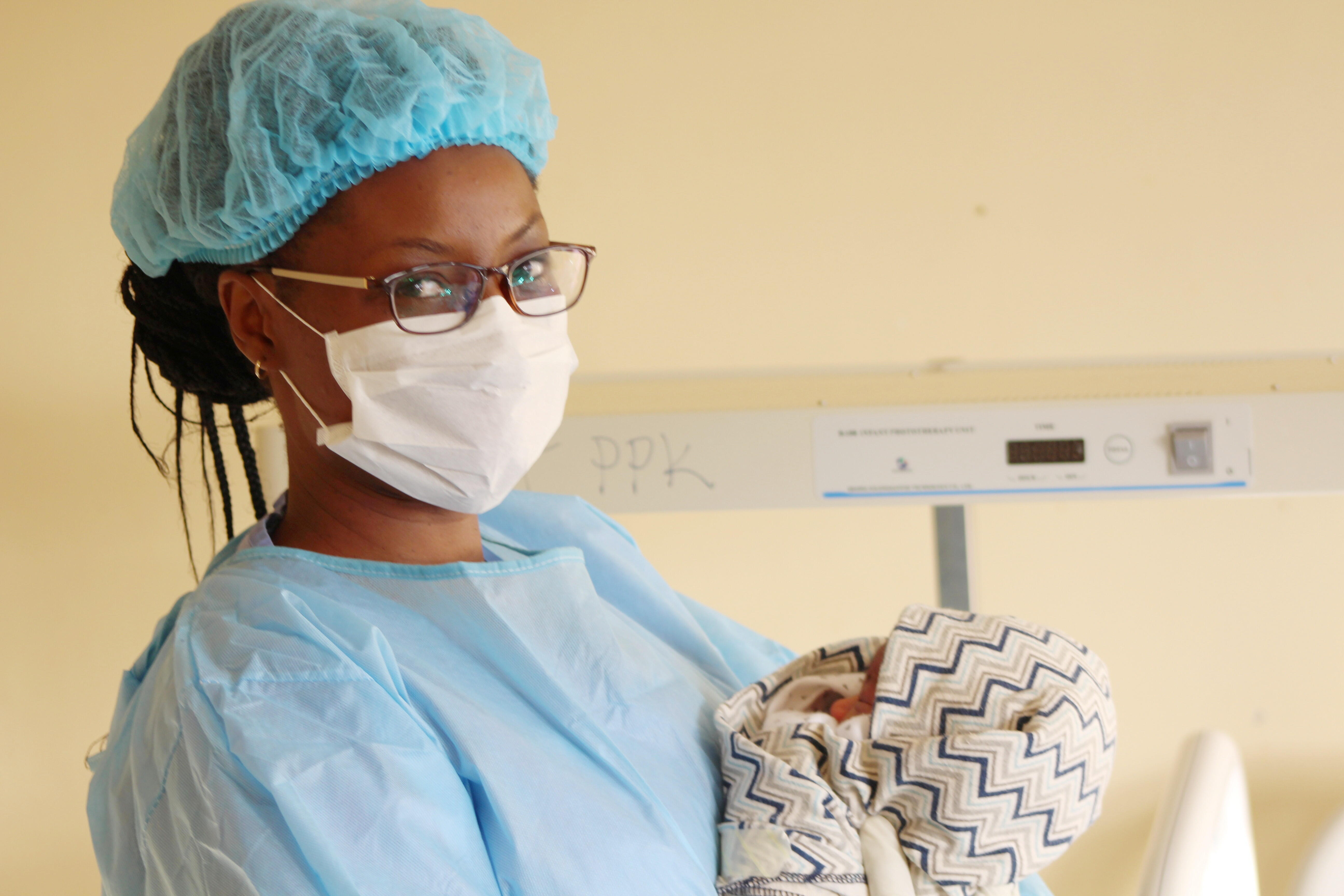Nolwazi Myeni, by virtue of being a young woman, is one of thousands of other women, who, once a month, receives an SMS through her mobile phone to notify her that family planning services were still available at all clinics amid COVID-19.
“I felt very encouraged to be assured that I could visit any clinic amid COVID-19 for my contraceptive needs. This is all I needed to hear as I toyed with the idea of what action to take to ensure that I continued to practice family planning during this era of COVID-19. With the lockdown’s movement restrictions, it’s easy to even forget the return date to the health facility. These SMSes, beyond encouraging us to go for the service, they also act as a reminder.”
That is how Nolwazi i responded to the news on young women receiving Family Planning messages in their mobile phones. Aged 24 and mothering a 6 year old, she still has a dream of becoming a teacher. For this reason, access to family planning services in the local health clinics is vital. She believes if she could prevent falling pregnant, she could focus on completing her Primary Teacher’s Diploma training and also remain a role model to the hundreds of adolescent girls she mentors in her community.
Continued access to family planning would avert thousands of unplanned pregnancies in the country during this pandemic period. Subsequently, UNFPA, in partnership with the World Food Programme and the Sexual Reproductive Health Unit in the Ministry of Health came up with a Short Message Service (SMS) mobilisation campaign. These messages are sent together with food relief messages to the communities by the World Food Programme. The campaign aims to reach a total of 80,000 young women, who are also receiving assistance through the WFP COVID-19 relief project in Eswatini.
The campaign aims at encouraging uptake of family planning services among women of reproductive age including adolescent girls. In part, the messages raise awareness on available innovations for limiting overcrowding in the already overburdened health facilities.
Family Planning Coordinator Lindiwe Malaza explains some of the COVID-19 customised dosage dispensing particularly designed for women on the Pill.
“We want to encourage the people to continue accessing the family planning services during this COVID-19 period. In addition, we want to emphasize that women can now consult with their nurse or doctor on the possibility of getting a 3-months’ supply of the Pill. Those using the injectable and IUD will continue on the normal procedure as they need regular monitoring,” the Coordinator explained.
A recent report by the Social Protection Cluster Partners indicates a 47% drop in family planning services uptake in Eswatini during this period compared to the same time in the previous year. This is a sign of a possible boom in births after the COVID-19 battle has been won.
UNFPA Acting Head of Office Margaret Thwala-Tembe, explaining the importance of accessing family planning in times of pandemics, said, “Pandemics like COVID-19 challenge UNFPA to be more robust and innovative towards ending the unmet need for family planning. Ensuring that women continue accessing these services is one way we can mitigate COVID-19’s impact on the health of vulnerable groups like women and girls.”
In a recent briefing with the World Health Organisation, UNFPA Executive Director Dr Natalia Kanem had lamented on the dire effects the COVID-19 pandemic has on women’s health considering that, “Sexual reproductive health services are not just necessities’, they are essential to the lives of women,” These indirect effects of COVID-19 tarnish the work of the already overburdened health workers.
Also identified as an indirect effect of the pandemic in the country, some health facilities, especially those serving rural communities, report a decline in number of women attending ANC and an increase in home deliveries and deliveries on the way to the health facilities.
“Since the start of the lockdown, we have noted an increase in incidents of women delivering babies either at home or on their way to the facility,” lamented Midwife Lobesutfu Nkambule in an earlier interview.
According to the recently released 2017 National Housing and Population Census report, a woman of reproductive age has an average of 3.2 children. If access to family planning services continues to drop in this pandemic, these numbers may worsen.



